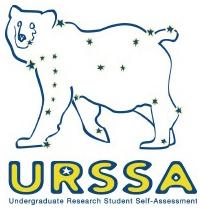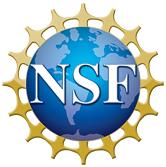Evaluation Tools: Undergraduate Research Student Self-Assessment (URSSA)
July 2024: The online platform that hosts URSSA is out of order.

July 2024: The salgsite.net platform that has hosted URSSA is not operational at present. New data cannot be collected at this time. Visit salgsite.net for more info and instructions on how to retrieve past data.
BIO REU users: Please contact your program officer for instructions.
Other URSSA users: We suggest you administer the survey on a local survey platform such as Qualtrics or SurveyMonkey (the free version won't do the job, alas).
This file has the text of questions and answer choices for the basic instrument, or use your text from an old data file, if you previously customized the questions. You can email Tim Weston (westont AT colorado DOT edu) to get a Qualtrics import file in QSF format (instructions here; CU's web folks do not allow us to post the QSF file here).
We were caught off guard by this news too, and we apologize for your trouble.
About URSSA
URSSA is an online survey instrument for use in evaluating student outcomes of undergraduate research experiences in the sciences. The URSSA survey items have been thoroughly tested and URSSA is now available for returning and new users!
- To learn more about URSSA, read the FAQs.
- See URSSA questions
Biology REU PIs only: info about the Biology Research Experiences for Undergraduates (REU) common URSSA assessment tool.
The URSSA was housed on the salgsite.net web platform designed for the Student Assessment of Learning Gains (SALG) instrument. Historically, this platform provided online tools that enable you to customize and administer the instrument, gather anonymous responses from your students, and review survey results in summarized or spreadsheet formats. The salgsite web platform is no longer considered secure by IT experts, and has been retired.
For background on the URSSA instrument, please see our other publications on assessing undergraduate research.
Acknowledgements

The URSSA team comes from the University of Colorado at Boulder and includes Anne-Barrie Hunter, Tim Weston, Heather Thiry and Sandra Laursen. We thank the SALG team and all the students, faculty, and program directors who helped us test and refine URSSA.
Development and testing of URSSA has been supported by the National Science Foundation through its Divisions of Chemistry and Undergraduate Education, the Biological Sciences Directorate, and the Office of Multidisciplinary Affairs, under grant #CHE-0548488.
Any opinions, findings, conclusions or recommendations are those of the researchers and do not necessarily represent the official views, opinions, or policy of the National Science Foundation.
Additional support was provided by the Biological Sciences Initiative and the NIH Scholars program, both at CU Boulder, through their grants from the Howard Hughes Medical Institute and the National Institutes of Health.

